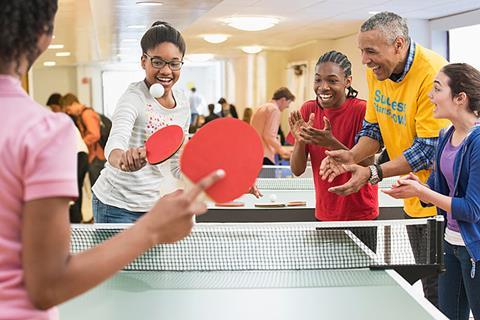A guide to using games in the classroom with lots of games and activities. Many of these games can be used by all ages.

Games make us laugh. We all like to laugh. Pleasure is very motivating. Laughter makes us more awake and relaxed – and not only I say so, so does the Department of Cognitive Psychology, University College, London.
Laughter raises blood pressure just long enough to increase oxygen and blood supply to tissues. It alters the breathing cycle so that more oxygen is inhaled and carbon dioxide exhaled. Muscles throughout the body tense and relax during laughter in exactly the same way as with stress reduction techniques such as yoga.
- If we find something funny, it is often memorable as it strikes a resonant chord within us.
- Many games are competitive and while I do not like the idea of making children feel like failures when they do not win, team games promote co-operation and if teams are regularly mixed up, everyone’s a winner.
- Some games rather than being amusing, encourage us to use our knowledge of the world around us rather than linguistic knowledge, which brings the world into our classroom.
- If lessons are long or daily we need to have plenty of variety, while still focussing on English language development – games provide variety.
- Games can be used as a ‘carrot’ with less motivated students. The promise of a game at the end of class may encourage them to complete less inspiring activities well.
There’s a game there
Many activities can be made into games by making them competitive. For example course books usually have grammar exercises. I get my students to work on these in ‘teams’. The teams with most right get a point and we collect points on the board during a lesson, so that points from later games and exercises can be added. The team with the most points at the end is the winner. I rarely give prizes (teachers are not rich!) but the joy of winning is enough. Again I must stress that I mix up teams form one lesson to the next so that the same students are not always the winners!
The games
Not all may be suitable with all ages, especially with the under eight year olds. You know your students and what their language level is, but don’t underestimate what they are capable of especially when it’s presented as a game.
Topics
Teenagers: Games
- 1
 Currently reading
Currently readingTeenagers: Games
- 2
- 3
- 4
- 5
- 6
- 7
- 8
- 9





No comments yet